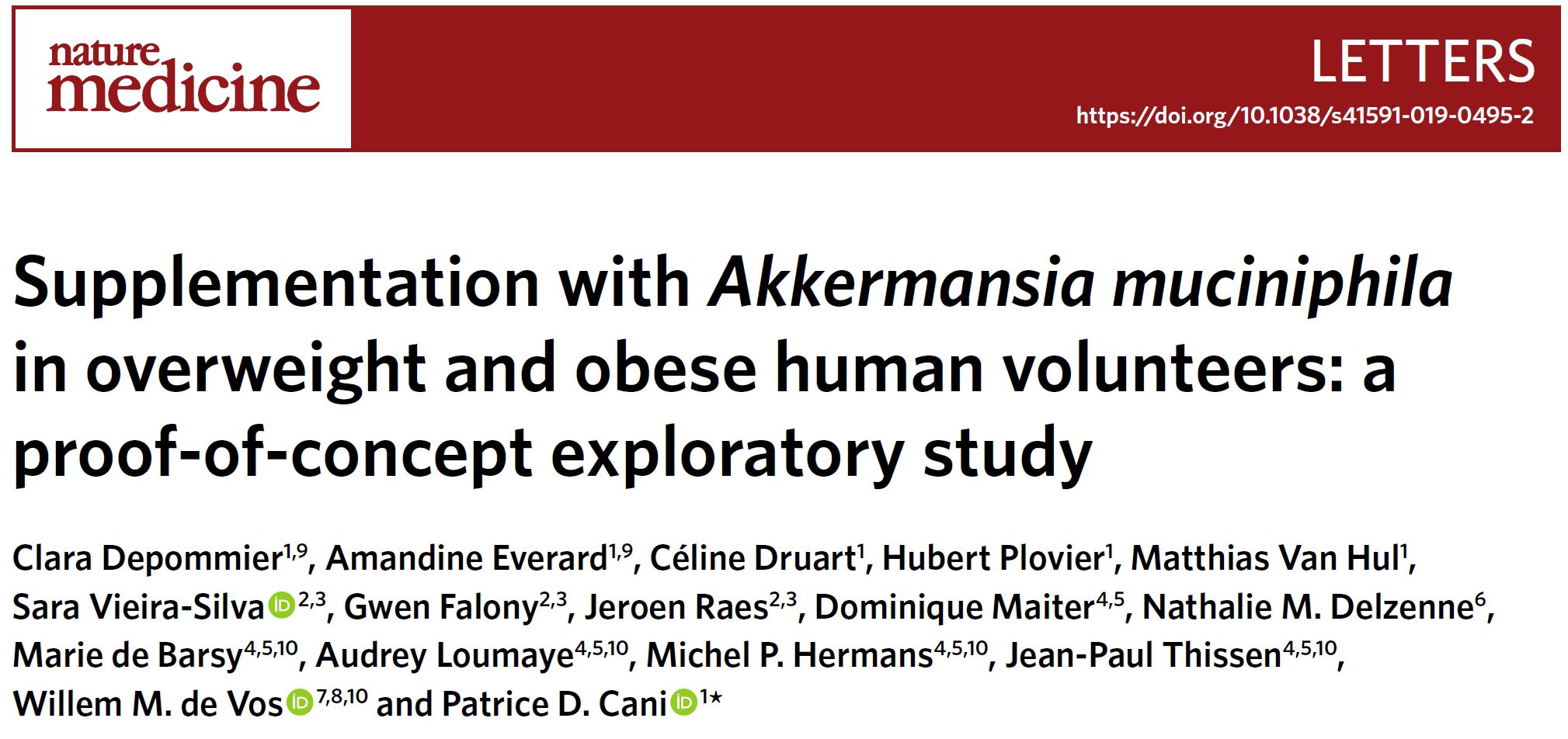This Gut Bacteria May Be Covered In Obesity-Fighting Proteins
/A randomized trial showed that Akkermansia muciniphila improves metabolic health, but why would dead bacteria work better?
And this, is Akkermansia muciniphila, a mucin-eating Gram-negative obligate anaerobe that lives happily in the intestinal tract. That is, if you’re lucky as more and more data points to A. muciniphila as an obesity-fighting bacteria. The presence of A. muciniphila goes down as BMI goes up in humans and mouse studies have shown that treatment with live A. muciniphila reduced weight gain by 50% when mice were put on a high-fat diet.
But mice aren’t people. And until now, all the suggestive findings about this bacterium were based on association, not causation.
That changes a bit this week with the publication of this study in Nature Medicine – a pilot randomized trial of A. muciniphila administration among individuals with the metabolic syndrome and insulin resistance.
32 such individuals were randomized to placebo, live A. muciniphila, or dead pasteurized A. muciniphila. The active treatment groups took around 10 billion bacteria, suspended in glycerin, daily for 3 months. The primary outcome was safety and the good news is that there were no serious adverse events.
We could stop there, but the data got more interesting than that. Multiple markers of metabolic health improved in the groups administered the bacteria compared to the groups receiving placebo.
I prefer my bacteria cooked, thank you.
Compared to placebo, insulin sensitivity increased, while total cholesterol and some liver function tests decreased. Interestingly, there was a significant decrease in the white blood cell count in those who got the bacteria, associated with a decrease in lipopolysaccharide in the blood – suggesting a strengthening of the gut barrier.
But here’s the weird part. In almost every case, the pasteurized bacteria had stronger effects than the live bacteria. This struck me as bizarre, initially. But interestingly, the authors had shown the same thing before in mice. Live bacteria worked OK, pasteurized bacteria worked better, but autoclaved bacteria didn’t work at all. What could be going on here? I asked senior author Dr. Patrice Cani of the University of Louvain.
He told me that A. muciniphila is covered in exo-polysaccarides – slime basically – which prevents a beneficial membrane protein known as amuc_1100 from being exposed to the immune system. That protein might be the secret of the bacteria’s beneficial effects because administering the protein by itself has the same effects, in mice, as administering the pasteurized bacteria. Pasteurization, Dr. Cani says, removes that slime coating and kills the bacteria but leaves the amuc_1100 unscathed. Autoclaving, on the other hand, destroys all the amuc_1100, ablating any effect.
If true, this is fascinating, because it implies that A. muciniphila is behaving less like a pro-biotic and more like a traditional medication. It also implies that direct administration of amuc_1100 might have even stronger effects than what this study showed.
Of course, none of the findings in the current study are earth-shattering. We’re a long way from data suggesting that this little bacterium can make any clinically relevant impact on obesity or metabolic syndrome. And for now, if you want to get your hands on A. muciniphila, you’re out of luck, there’s only one lab producing it at quantity and it won’t be on the market until at least 2021. But take heart, by then we may actually know if it really works, and more importantly, how.
This commentary first appeared on medscape.com

